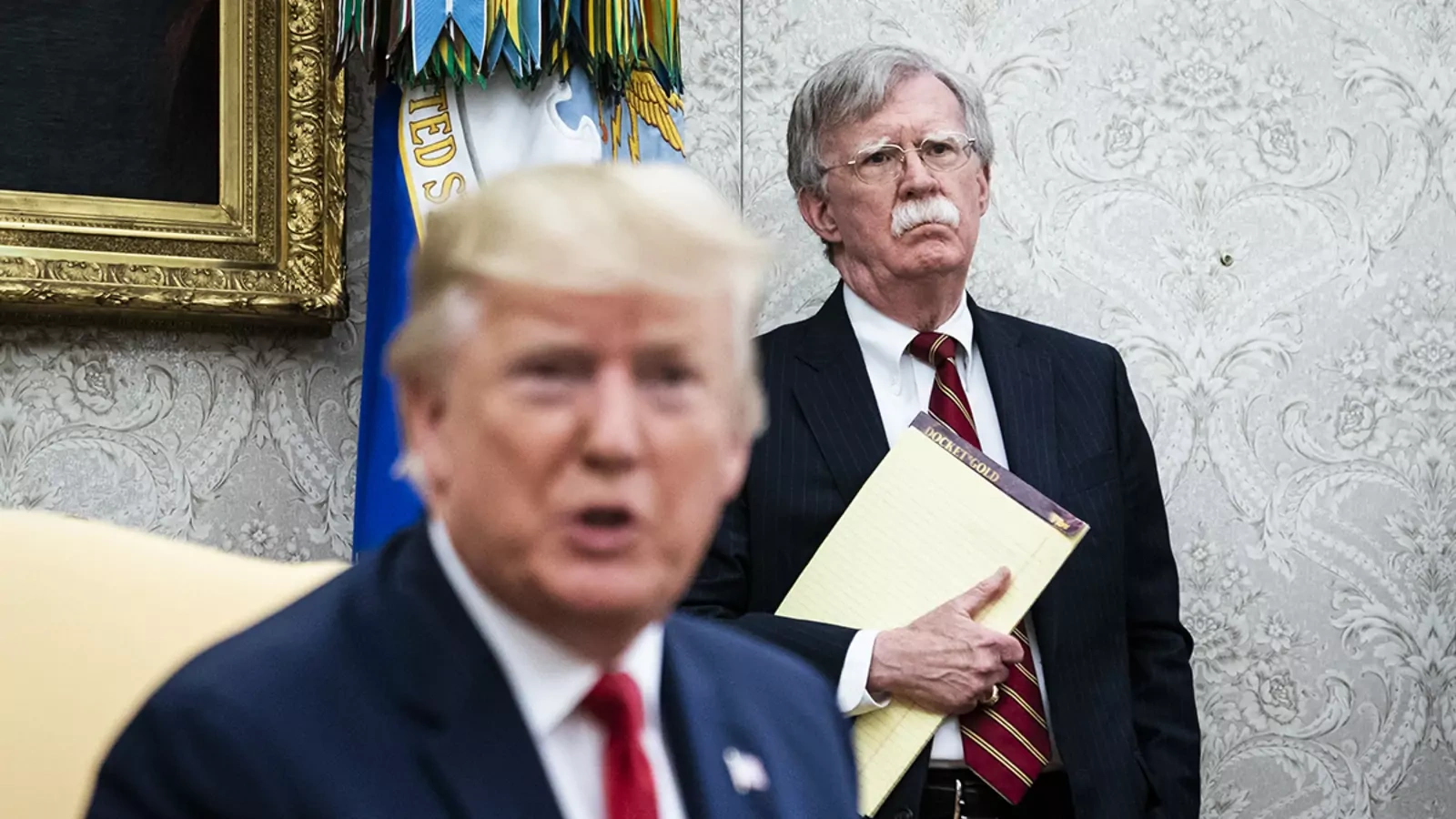John Bolton’s Successor Will Struggle to Satisfy Donald Trump

Diplomacy could well come to occupy center stage for a president who relishes summitry.
Originally published at Financial Times
September 13, 2019 8:00 am (EST)

- Article
- Current political and economic issues succinctly explained.
This article originally appeared in the Financial Times.
“Sic transit gloria mundi” — thus passes the glory of the world — was said in Rome as one pope gave way to another, reminding the successor to be humble as one day he, too, would pass on. Glory seems especially fleeting for American national security advisers, as we have now had three in less than three years.
More on:
The most recent to be shown the door is John Bolton, reportedly because he and President Donald Trump frequently disagreed on big issues. Mr Bolton, for his part, was prepared to go to war against both North Korea and Iran. He saw diplomacy in Afghanistan as a trap and favoured a confrontational policy towards Russia. Mr Bolton also sought more extensive ties with Taiwan.
Mr Trump, who had got elected criticising the conflicts in Iraq and Afghanistan, was prepared to threaten wars but not start them. He wanted close ties with Russia; confrontation with China was fine only if it was economic.
There is already a good deal of speculation as to Mr Bolton’s successor, but the reality is that he or she will matter more when it comes to the specifics of US foreign policy rather than its direction, something the president will continue to determine.
The national security adviser wears two hats. That individual is a counsellor to the president who owes the boss his best advice. Even more important, though, is the second hat — that of honest broker. He or she is the person who ensures the president hears a wide range of views from those with a stake in the policy under consideration, insists that decisions are made only after careful deliberation, and then keeps a watchful eye as policies are implemented.
The challenge is to not allow personal preferences to interfere with due process. Some in the job (including Mr Bolton) have failed to get this balance right. Without a rigorous process, important information is not factored in and decisions tend to be taken without adequate consideration of implementation challenges and costs. The debacle that was the decision to go to war against Iraq in 2003, along with the lack of preparation for the aftermath, is a case in point.
More on:
A fair case can be made that Mr Bolton lacked the judgment and even more the temperament for the job. But it is difficult to imagine anyone succeeding in an environment in which the president does not trust intelligence, in which decisions are often made on the fly and broadcast on Twitter, and in which there are overlapping and unclear authorities. It doesn’t help that the president’s family has a portfolio of their own.
In this context, the new adviser would be wise to focus on details. Take North Korea. Empty threats of fire and fury have been followed with sure-to-fail calls for North Korea to give up all its nuclear weapons. Instead, the North has increased its nuclear arsenal. The time has come to try to negotiate a traditional arms control agreement, in which a degree of sanctions relief is traded for constraints on the North’s nuclear and missile programmes. A new security adviser could help structure this.
As for Iran, the administration has applied economic pressure but lacks a clear purpose. Regime change, Mr Bolton’s preference, is not a serious possibility. Mr Trump is attracted to high-level summitry. But to what end? And what would he be prepared to give the Iranians in order to get it? He had better decide fast, as we are drifting toward war, something at odds with Mr Trump’s desire to wind up existing Middle East conflicts and avoid new ones. Here again Mr Bolton’s successor could help design a sound proposal, one that would limit Iranian actions in the nuclear and possibly other spheres in exchange for reduced economic pressures.
And then there is Afghanistan. The aborted Camp David meeting with the Taliban was motivated by a desire to withdraw US forces from the country. That is possible, but peace is not, so long as the Taliban are in Afghanistan and Pakistan provides them with sanctuary. Withdrawal would likely create conditions where Afghanistan would again pose a terrorist threat. Here Mr Bolton was more right than wrong. His successor might consider focusing on slowing down a US withdrawal or, better yet, adding conditions to it rather than opposing it outright.
For these and other challenges, the critical question is whether this president is willing to narrow the gap between his goals and what he is prepared to do to accomplish them. He either has to scale back objectives or increase efforts. The former is more compatible with Mr Trump’s “America First” agenda. As a result, diplomacy could well come to occupy centre stage for a president who relishes summitry and has supreme confidence in his personal skills.
The most successful national security process in recent decades was that of George HW Bush. In Brent Scowcroft, he had a national security adviser he trusted, one who had strong views yet never let these views interfere with his fidelity to process.
But Mr Scowcroft had a big advantage — he and his boss were mostly on the same page. Mr Bolton’s successor may not have that luxury. It is something he or she might want to consider before accepting the job.
 Online Store
Online Store